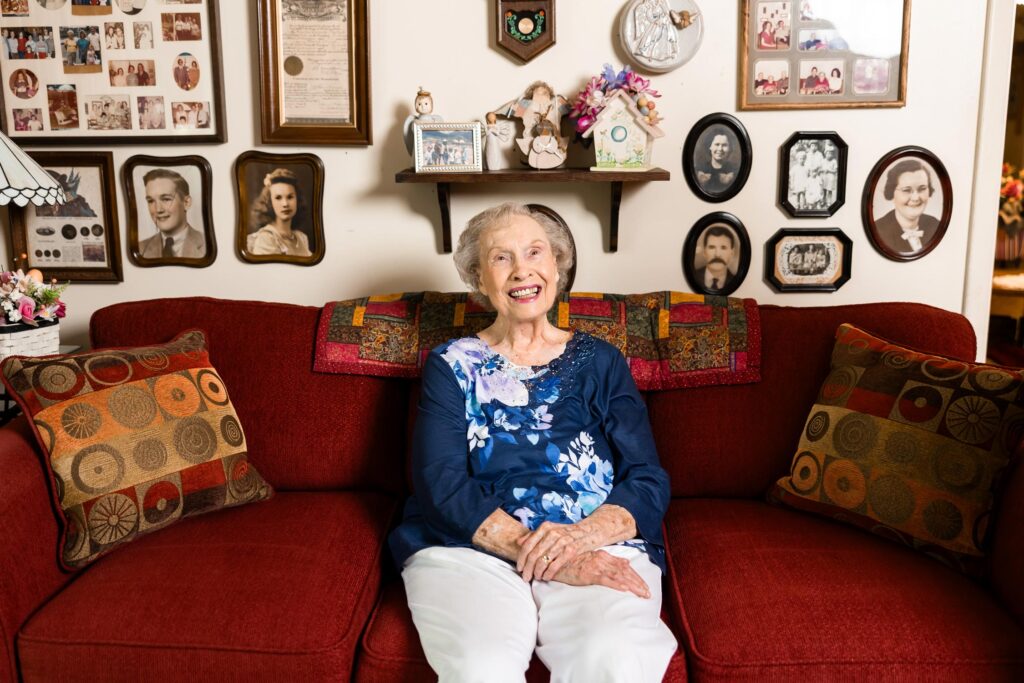If you're caring for an aging parent, you're not alone—and you deserve a break. Day centers for seniors offer your loved one safe care, social time, and health support while you rest or work. These centers provide meals, memory support, and engaging activities that help older adults stay active and happy. We’ll walk you through what these centers offer each day and how they benefit your family.
Key Takeaways:
- Senior day centers provide social care (activities, meals, companionship) and medical care (nurse assistance, medication management, monitoring).
- Programs offer safety, routine, and cognitive/social support, especially for individuals living with dementia or physical challenges.
- Common activities include music, art, fitness, games, memory support, and peer bonding to improve joy, thinking, and movement.
- Typical prices range from $60–$100/day or $10–$20/hour; some fees may be adjusted based on income, and Medicaid or VA help may be available (Medicare usually does not cover).
- Participants usually include older adults in need of supervision, care, or interaction.
- Family caregiver perks include time to rest, resource access, and reassurance.
- To find a center, visit caregiver.org, look up state licenses, and tour centers to review staff, safety, and routines.

Day Centers for Seniors Offer Support, Structure, and Joy
As aging adults face changes in health, memory, and mobility, day centers for seniors offer a safe and engaging solution. These centers not only support older adults directly, but they also provide essential relief for caregivers. Whether a loved one needs help with medical care, social interaction, or memory support, these programs are built to meet a wide range of needs.
In fact, the best centers offer more than just care—they offer community, purpose, and peace of mind. Let’s explore how day centers for seniors enrich lives, support families, and make each day more meaningful.
Day Centers for Seniors Provide Social and Medical Support
Most day centers for seniors offer two main types of care: social and medical. On the one hand, social care includes activities like music, games, meals, and time with friends. On the other hand, medical care adds services such as health checks, medication reminders, and mobility assistance.
For example, seniors attending a social center may enjoy:
- Painting or craft classes
- Engaging in group discussions and storytelling
- Participating in gentle exercise or dance
- Enjoying shared meals and mealtime conversations
Meanwhile, those in medical day centers may receive:
- Blood pressure or glucose checks
- Medication management
- Help with walkers or wheelchairs
- Support from licensed nurses
These services are especially helpful for those living at home, offering structure during the day and allowing families time to work, rest, or handle other responsibilities.
Memory Care Programs Offer Specialized Support for Cognitive Health
For seniors with Alzheimer’s or other forms of dementia, some day centers for seniors offer memory-specific programs. These centers not only create calm, predictable environments but also offer brain-stimulating activities such as:
- Music therapy and familiar tunes
- Simple sorting or gardening tasks
- Hands-on crafts and puzzles
- Gentle routines that reduce anxiety
Each activity is specifically designed to promote mental clarity, comfort, and dignity. Furthermore, meals play an important role in the day, offering both nutrition and social connection. In addition, some centers even follow condition-specific diets to support individual health needs.
To ensure quality, all licensed centers must adhere to state regulations. Staff receive training in both safety and compassionate care. Additionally, many centers provide transportation to and from the facility, thereby easing the burden on families.
Enrichment Programs in Day Centers for Seniors Build Routines and Emotional Well-Being
Daily structure is one of the key benefits of day centers. Typically, each day includes:
- There are morning welcomes and breakfast.
- Activities like crafts or fitness take place.
- Quiet time or rest periods are scheduled.
- Nutritious lunches are served.
- The day concludes with afternoon games or music.
This rhythm not only helps seniors maintain mental focus and emotional balance but also supports memory and reduces feelings of confusion.
Moreover, social engagement significantly lifts spirits. As seniors make new friends, see familiar faces, and enjoy conversations in a warm environment, these connections reduce loneliness and foster a sense of belonging.
Eligibility Depends on Needs, Not Just Age
Most day centers for seniors generally welcome adults aged 60 and older; however, some also accept younger adults with disabilities. Typically, eligibility is based on health, social needs, and a center’s ability to safely meet those needs.
For instance, a person may qualify if they:
- Have memory concerns
- Need help with daily tasks
- Are socially isolated
- Require health monitoring
Before admission, each center conducts an assessment to ensure a good fit. Ultimately, the goal is to create a safe, engaging setting where every participant can thrive.
Costs Vary, but Support and Financial Assistance Are Available
Costs for day centers for seniors depend on the services provided and the location. Most centers charge:
- $60 to $100 per day
- $10 to $20 per hour
- Monthly packages for regular attendance
These fees generally include meals, activities, and staff support.
However, many families qualify for financial help. Payment options may include:
- Sliding scale fees based on income
- Medicaid waivers in participating states
- Veterans Affairs (VA) adult day health programs
- Private long-term care insurance
Medicare often does not cover general adult day care, but may pay for skilled services like therapy. To explore coverage, contact your state’s Medicaid office or use BenefitsCheckUp to search for assistance programs.
Caregivers Benefit from Respite and Peace of Mind
Caring for a loved one is undoubtedly rewarding; however, it can be exhausting. Thankfully, day centers for seniors offer caregivers essential time to rest, work, or run errands.
This short-term relief, known as respite care, plays a significant role in preventing burnout. Consequently, with reliable daytime support, caregivers can recharge without guilt, knowing their loved one is safe, active, and cared for.
Some centers offer:
- Caregiver support groups
- Workshops on stress and health
- Tips for improving care at home
This whole-family approach ensures that both the senior and the caregiver are well-supported.
Licensed Centers Follow Safety and Training Standards
When choosing a day center for seniors, it’s essential to look for licensed facilities. Licensure ensures that the center:
- Meets health and safety regulations
- Provides staff training
- Offers secure, accessible environments
- Maintains proper emergency procedures
To verify licensing, ask the center directly or contact your local Area Agency on Aging. You can also explore tools like the Family Caregiver Alliance to find centers by ZIP code.
During a visit, ask questions like:
- What is the staff-to-participant ratio?
- How are medications managed?
- Are meals adjusted for dietary needs?
- Is transportation available?
- What activities are offered each day?
A well-run center should be clean, welcoming, and staffed by kind, attentive professionals.
Dementia-Friendly Centers Provide Calm and Personalized Care
For those with dementia, day centers for seniors must offer more than basic care—they must create an environment that feels safe and familiar. These centers often include:
- Clear signs and labels
- Calm, quiet rooms
- Locked doors with gentle alarms
- Staff trained in memory care
Programs are tailored to reduce confusion and increase comfort. Activities such as folding towels, singing familiar songs, or watering plants give participants a sense of purpose and routine.
The best centers also keep a low staff-to-participant ratio, ensuring plenty of one-on-one attention. This approach makes it easier to spot changes in health, respond quickly, and build trusting relationships.
Seniors With Disabilities Receive Inclusive and Respectful Support
Many day centers for seniors also serve adults with physical or developmental disabilities. These centers are thoughtfully equipped with features such as:
- Wheelchair-accessible spaces
- Grab bars and non-slip flooring
- Adaptive seating and restrooms
- Tools such as lifts or walkers
Furthermore, staff receive specialized training to support a wide range of conditions, from stroke recovery to autism or Down syndrome. As a result, programs may include motor skills practice, communication exercises, or sensory-friendly activities designed for comfort and growth.
Additionally, these centers actively promote inclusion through group games, shared meals, and gentle fitness classes. Each person’s strengths are honored, and every effort is made to foster community and confidence.
Daily Activities Promote Health, Connection, and Joy
The heart of any day center for seniors is its activity schedule. These programs keep participants engaged, stimulated, and happy.
Popular activities include:
- Music therapy: Singing, drumming, or listening to favorite songs
- Art and crafts: Painting, coloring, or hands-on projects
- Light exercise: Chair yoga, stretching, or walking groups
- Games: Cards, bingo, or trivia
- Brain boosters: Puzzles, memory games, or group reading
- Social hour: Group discussions, storytelling, or themed events
These routines not only improve memory and mood but also reduce feelings of isolation. With structure and variety, each day becomes a chance to learn, laugh, and connect.
Choosing the Right Center Begins With a Visit
Before enrolling, families should visit several day centers for seniors. When touring, pay attention to:
- Cleanliness and layout
- Staff interaction with participants
- Sample schedules and menus
- Safety features and transportation options
Ask about trial visits or observation days. These allow your loved one to experience the environment before making a long-term commitment.
Every senior is unique, so it's important to choose a center that fits your loved one’s needs, interests, and health conditions.
Resources Help Families Explore Options
To find local programs or learn more about standards and funding, use these trusted tools:
- CareLink (central Arkansas)
- National Adult Day Services Association
- BenefitsCheckUp
- Eldercare Locator
- Family Caregiver Alliance
Also, your local Area Agency on Aging is a great place to start. They can guide you through options, eligibility, and financial assistance.
Seniors Thrive With Structure and Support
Ultimately, day centers for seniors offer more than care—they offer hope, joy, and dignity. With daily routines, engaging activities, and health monitoring, they help older adults live more vibrant lives.
Family caregivers also benefit from trusted support and time to care for themselves. With the right center, every day becomes an opportunity for connection and growth.
Ready to Explore Support for Your Loved One?
Get Started With CareLink Today
If you're looking for day centers for seniors that offer compassionate care and vibrant activities, CareLink is here for you. Their team will help you explore services, understand your options, and make the best decision for your family.
From memory care to social programs, support is just a step away.
Contact CareLink here to begin the conversation.





